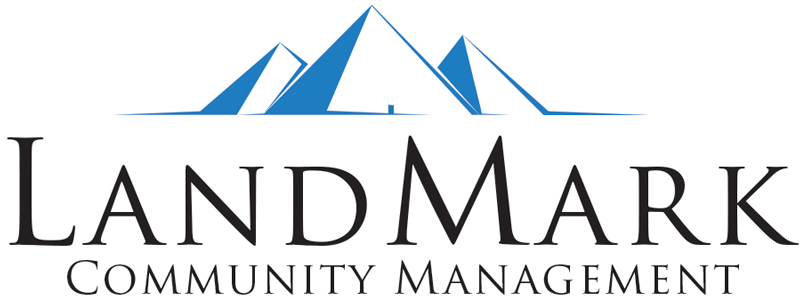Every HOA conducts a reserve study to know how much to assess homeowners. It’s an important part of keeping the association financially stable. However, why exactly are reserve studies – and, by extension, reserve funds — important? Let’s find out.
What Is an HOA Reserve Study?
Before defining a reserve study, we must understand what HOA reserves are. Every asset or facility has a lifespan. Regular HOA assessments may be able to fund regular maintenance activities, but they’re not enough to cover major repairs or replacements of aging infrastructure.
Eventually, the board needs to repair or replace the HOA’s assets. It will cost a ton of money. That’s where the HOA reserves come in. The HOA sets aside this reserve fund early, funding it a little at a time — over time. When something breaks or needs major maintenance, the HOA can pay for it without overburdening the members financially with a special assessment.
Meanwhile, a reserve study for condo associations or homeowners associations helps the board members know how much the reserves need. The person who conducts the study achieves this by inspecting the association’s assets.
The inspector analyzes the life expectancy of these assets and tells the board when they might need major replacements or repairs. The homeowners association reserve study can also tell the board how much they need.
What Are the Parts of a Reserve Study?
A reserve study has two main parts: Financial Analysis and Physical Analysis. The financial analysis examines the association’s financial condition, income, and expenses. It also takes into account the current standing of its reserve funds.
In contrast, the physical analysis examines the physical state of the association’s common elements and assets. It also estimates the cost of repairs and replacements.
Reserve Study for HOA: Why Are They Important?
A homeowners association or condominium reserve study is important for several reasons. Firstly, they ensure the association’s financial health. After all, every HOA must maintain the common areas and the association’s assets. If the HOA cannot meet these demands, the community’s common areas will deteriorate, and eventually, property values will plummet.
The HOA can meet the demand by levying special assessments. However, doing so is unwise as it places a big financial burden on the community members. After all, not everyone can pay hundreds of dollars for a special assessment in one go.
Furthermore, while HOAs may be able to take out a loan, this is a riskier move than funding the reserves. Loans have interest and can be a bigger financial burden if the HOA cannot make payments.
In addition, amply funded reserves will allow the HOA to make capital improvements. These can improve the lives of homeowners and upgrade any outdated equipment. Without properly funded reserves, the HOA will fall behind, and its residents will suffer.
Legal Reserve Study Requirements
The law sometimes requires a homeowners association or condo reserve study. Some states also require HOAs to conduct them every few years. What are the different reserve study requirements by state? Here are the requirements of a few major U.S. states.
Arizona
The resale disclosure statement in planned communities and condominiums must contain the association’s total reserve amount. Moreover, the community must provide the buyer with a copy of the most recent reserve study according to the Arizona Revised Statutes Section 33-1806 and Section 33-1242.
However, the state does not require reserve studies or funding for reserves.
California
According to California law, HOA board members must examine and compare their reserve accounts with the previous year’s accounts. They must do so every quarter. Moreover, they must perform careful visual inspections of any association property at least once every 3 years. The study must be annually reviewed and adjusted if need be.
The reserve study should also do the following:
- Identify major components with less than 30 years of useful life under the HOA’s jurisdiction.
- Define the likely remaining lifespan of the identified components.
- Estimate the cost of repair, maintenance, or replacement of said components.
- Provide an estimate of the total annual contribution per member to meet the cost of maintenance, repair, and replacement of those components minus the current reserve amount.
- Offer a funding plan that suggests how the HOA can fund the contributions.
Despite these requirements, there is no legal obligation to allocate funds for the HOA reserves.
Georgia
According to Georgia law, condominium resale disclosure statements must indicate the association’s estimated or actual operating budget for the ongoing year’s reserve funds. However, Georgia does not require HOAs to allot funds for reserves or conduct reserve studies.
Texas
Unit owners associations are free to adopt budgets for reserves and amend them. However, Texas does not require associations to perform reserve studies or set aside reserve funding.
How to Conduct a Reserve Study
While reserve studies are crucial, not many HOAs know how to conduct them properly. How does a community conduct inspections to create a reserve study?
Firstly, hiring specialists like reserve study companies or an HOA management company to perform the inspection is best. These institutions are more experienced and know what to inspect and how to evaluate them. They might cost money, but they’re certainly worth the resources.
The company will list all the major aspects the HOA needs to fund through reserves. This also includes an evaluation of the current reserve fund’s health. Moreover, the study will include a recommendation for a multi-year funding plan.
The report also lists the remaining life expectancy of current major assets and common elements. Furthermore, it will list the current replacement cost and how much the reserves need.
Start Funding Today
A homeowners association must take reserve studies seriously to ensure the community’s financial stability. Otherwise, the HOA can quickly fall into financial ruin. This can lead to unwanted special assessments or loans that only burden the community. Don’t neglect the reserve study, and make sure your HOA is fully funded.
Are you looking for a reliable HOA management company in Texas that can conduct thorough reserve studies? Landmark Community Management is the right company for the job. Call us today at 512-569-5527 or contact us online to learn more!
RELATED ARTICLES:


